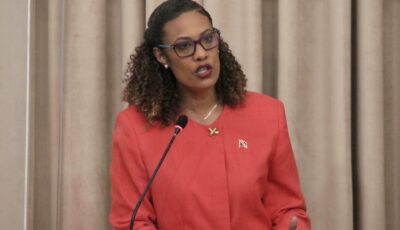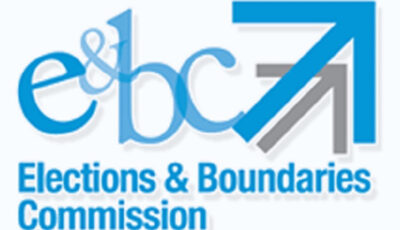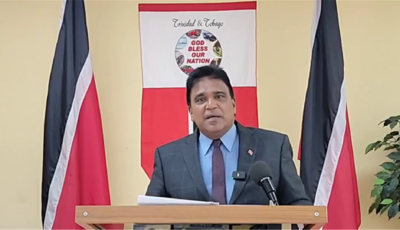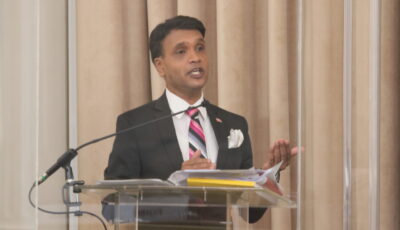H.C. Nicholas and Shell Discuss Positive Outlook for T&T Energy Sector

H.C. Nicholas and Shell Executives discuss positive outlook for T&T energy sector
The growth of multinational energy company Shell in Trinidad and Tobago was central to discussions on Monday 24th March, when Trinidad and Tobago High Commissioner to the United Kingdom, His Excellency Garvin Nicholas met with several officials from the company, including Carlos Ibarguen, Head of Government Relations for Latin America and the Caribbean, Luis Prado, Head of Shell Operations in Trinidad and Tobago, and Charlotte Gibson, Government Relations Advisor.
Mr. Prado informed the High Commissioner that following Shell’s acquisition of Repsol’s stake in Atlantic (formerly Atlantic LNG), the company was keen to advance its portfolio in Trinidad and Tobago, where in 2013 it celebrated 100 years of uninterrupted activity. Mr Ibarguen stated that the acquisition provided Shell with a vital link into the medium-stream space, an opportunity which could potentially introduce options for possible upstream activity. He indicated that whilst Trinidad and Tobago had long been on Shell’s radar for increased investment, the country’s revised fiscal regime had bolstered the company’s interest.
Mr. Prado also emphasised Shell’s confidence in the measures being adopted by the Government of the Republic of Trinidad & Tobago, stating his belief that Trinidad and Tobago’s oil and gas sector was moving in the right direction. “Trinidad and Tobago must retain its competitiveness, particularly with the increasing level of activity within the region,” stated Mr. Prado.
H.C. Nicholas and Mr Prado also discussed Trinidad and Tobago’s numerous advantages within the region, particularly its political and economic stability and its vast experience in the Gas and more so the Oil industries. Mr. Prado also praised Trinidad and Tobago’s implementation of the Extractive Industries Transparency Initiative (EITI), noting that currently Peru is the only EITI compliant country in Latin America.
The High Commissioner and his guests also discussed potential adverse influences on Trinidad and Tobago’s energy sector, in particular the US shale gas revolution and the concern of Trinidad and Tobago’s possible ‘brain-drain’ of highly qualified and experienced staff into more attractive propositions in Oil & Gas operations across the globe.
Mr. Prado advised that Trinidad and Tobago has demonstrated its resilience as its economy had not suffered adversely, despite having been the largest single supplier of LNG to the US prior to the rise of shale gas. With regard to a perceived brain drain, H.C. Nicholas stated that the Government of Trinidad and Tobago recognised the high demand for trained engineers and operators and had taken the necessary measures to increase the output of such graduates. “We are addressing this issue via high quality programmes at the University of the West Indies in St Augustine and the University of Trinidad and Tobago,” he remarked. “Trained personnel in the Oil and Gas industry is in fact a lucrative export product for Trinidad and Tobago. It would be ideal for Shell to target foreign-based Trinbagonian personnel who may be willing to return home and work in our local sector”.
The High Commissioner also expressed his pleasure at receiving the positive feedback of the measures being taken by the Government of the Republic of Trinidad and Tobago, noting that he has had similar feedback and positive outlook from the likes of British Petroleum (BP) and British Gas (BG). Mr Prado responded that Trinidad is the only country where stakeholders such as BP, BG and Shell have demonstrated an ability to work harmoniously and within a complex commercial environment to deliver such a success story that is Atlantic.






